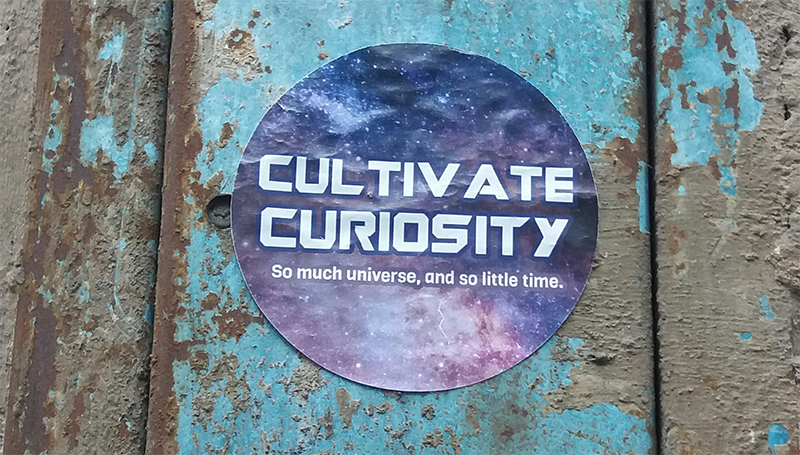Have you ever thought about what it takes to be successful in your career or, for that matter, successful in life in the broadest sense? You might put innate talent at the top of list. Or, as Thomas Edison declared, genius is one percent inspiration and 99 percent perspiration. If you’ve ever struggled long and hard to achieve a goal, and actually achieved it after years of effort, you might cite perseverance as the single most critical attribute.

All those are worthy candidates for the top trait necessary for success. But there is another contender: curiosity. Writing for Success.com, Iona Brannon summarizes key points from Scott Shigeoka’s book, SEEK: How Curiosity Can Transform Your Life and Change the World. Brannon begins by talking about Shigeoka’s positive reasons to be curious, making the case “for adults learning how to be more curious… curiosity doesn’t just make life more enjoyable; it deepens our connections with others, reduces our fears and anxiety and reverses our society’s isolation.”
There are many things to be curious about, and most people naturally direct their curiosity in a certain direction. Some people are curious about others, wondering what makes them tick and what they value. Others are inclined to dig into themselves, exploring their own emotional state and interior motivations. Still others are curious about the natural world. Given these inclinations, it’s no wonder that some people are drawn toward particular career paths. If you’ve always wondered about the stars, for example, or weather patterns or certain illnesses, there’s a good chance you’ve ended up in the sciences — and perhaps not in child counseling.
If you’d like to cultivate your own curiosity, and perhaps explore one of the directions discussed above and not the one you’ve always been inclined to, Brannon points to an acronym coined by Shigeoka: DIVE.
D: stands for Detach. The first step is to “let go of our assumptions, biases and certainties.” This may actually be easier said than done. Letting go of something you’ve always believed, and letting your curiosity lead you to discover that you’ve been wrong can be disruptive to your view of life.
I: stands for intent. One way to minimize the disruption that may come from discovering perspectives that are in conflict with your own is to approach your goal with a certain mindfulness. Be aware that you may have sudden discomforting revelations. If you’re seeing signs that this may be the case, slow yourself down. Take time to reflect on the process before resuming your quest.
V: stands for value. It’s no secret that we live in a polarized era. Especially with social media garnering so much attention, we may see people on a daily basis demonizing people with opposing viewpoints. Curiosity might give you insights that help you see those with opposing views as good people of good intent who are simply wrong. That in itself may be the value in pursuing your curiosity.
E: stands for embrace. It is almost axiomatic that personal growth is driven by difficulties. If you think back on your own development, you probably didn’t mature much when everything was rosy. You grow and mature as you confront and solve problems. It’s even been characterized by author Richard Rohr as “falling upward.” Shigeoka also says that embracing curiosity during hard times may help us avoid succumbing to fear or anxiety.
To grow personally or in your career, then, consider taking the deep dive. Begin by exploring Shigeoka’s book here.